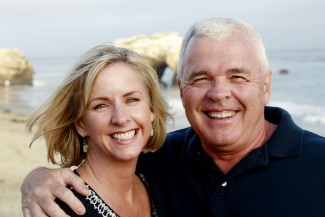As dentists, we will always urge people to have a regular routine when it comes to their dental health. More than that, we want it to be comprehensive: brush twice daily, floss and mouthwash. As long as you do these things, you will be fine. Combined with bi-annual visits to the dental office, and you are probably set for a life of healthy teeth.
 Mouthwash, or mouth and oral rinses, is something that usually does not factor into people’s dental habits. At times, it is people’s dental habits. The latter is unhealthy, and as we progress in this blog, you will find out that it is pretty useless in itself. Think of it as something that makes brushing better—a complementary treatment.
Mouthwash, or mouth and oral rinses, is something that usually does not factor into people’s dental habits. At times, it is people’s dental habits. The latter is unhealthy, and as we progress in this blog, you will find out that it is pretty useless in itself. Think of it as something that makes brushing better—a complementary treatment.
Is It Necessary?
At the office of David Madruga, we are all for everything that will improve your oral situation. This means we suggest that our patients use an oral rinse to accompany their brushing. We also want you to know that whatever mouthwash promise to offer you, it is primarily a tool for you to have fresher breath. Your toothbrush and toothpaste will do most of the hard work, especially the cleaning.
This is not to say that gargling mouth rinses only freshens your breath. For one, it helps shake off food residue on your teeth that the brush did not get. Furthermore, look for mouthwash with fluoride or antibacterial agents. This way, you can be sure that your teeth are fresh and clean.
You also have to remember to buy the right kind of mouthwash. Do not buy alcohol-free or any kind of special mouthwash if you do not need it. Regular mint should be fine in ensuring your teeth are clean and your breath fresh.
Come to the office of David Madruga for your routine dental needs. You can also trust us to replace bad teeth, if that is what you need. Trust us to give you a pleasant dental experience.
Contact us for more details.




 Today, a smile is the assurance of your fun-loving, outgoing and carefree nature. In fact, a genuine smile is one of the top things the opposite sex looks for in a potential partner. If you wish to find love, all you have to do is pull off your greatest weapon: a picture-perfect smile.
Today, a smile is the assurance of your fun-loving, outgoing and carefree nature. In fact, a genuine smile is one of the top things the opposite sex looks for in a potential partner. If you wish to find love, all you have to do is pull off your greatest weapon: a picture-perfect smile. The reason dentists avoid extraction is because losing the natural tooth prompts a series of dental problems, including loss of function and bone resorption, a process that naturally happens after a tooth has been extracted or lost.
The reason dentists avoid extraction is because losing the natural tooth prompts a series of dental problems, including loss of function and bone resorption, a process that naturally happens after a tooth has been extracted or lost. But how about alcohol? How does alcohol affect the teeth?
But how about alcohol? How does alcohol affect the teeth?  But, sometimes the damage is already done before patients fully understand why it is necessary to have implants. People do not have to worry about bone loss, though. Now, there are ways to repair and grow new bones – guided bone regeneration and bone grafting – that are already a part of dental routines.
But, sometimes the damage is already done before patients fully understand why it is necessary to have implants. People do not have to worry about bone loss, though. Now, there are ways to repair and grow new bones – guided bone regeneration and bone grafting – that are already a part of dental routines. Dental implants have a very high success rate – up to 98%. If you’ve lost teeth and gone through the process of having implants fitted, the last thing you’ll want to happen is to lose your teeth again. Here is a guide to looking after your implants, including the importance of regular reviews, regular visits to the dentist and hygienist, and a good home care routine.
Dental implants have a very high success rate – up to 98%. If you’ve lost teeth and gone through the process of having implants fitted, the last thing you’ll want to happen is to lose your teeth again. Here is a guide to looking after your implants, including the importance of regular reviews, regular visits to the dentist and hygienist, and a good home care routine. There are several good reasons to replace your missing teeth. Here are just some of them:
There are several good reasons to replace your missing teeth. Here are just some of them: Not everyone knows, however, that smoking also has significant effects on
Not everyone knows, however, that smoking also has significant effects on  Dr Madruga has helped scores of patients from Marylebone and beyond who have lost one or more teeth for many reasons. Whatever the reason, replacing missing teeth is vital to not just your dental health, but also your overall wellbeing.
Dr Madruga has helped scores of patients from Marylebone and beyond who have lost one or more teeth for many reasons. Whatever the reason, replacing missing teeth is vital to not just your dental health, but also your overall wellbeing. Bone loss is a common side effect of having missing teeth. If you have been wearing dentures for several years, you may have noticed that though they once fitted perfectly, they have become loose over time. You may have had to return to your dentist more than once to have your dentures adjusted, and may be struggling with sloppy pastes to keep them in place.
Bone loss is a common side effect of having missing teeth. If you have been wearing dentures for several years, you may have noticed that though they once fitted perfectly, they have become loose over time. You may have had to return to your dentist more than once to have your dentures adjusted, and may be struggling with sloppy pastes to keep them in place.